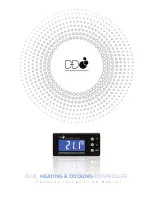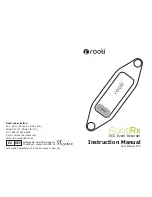
3
4. SIM Card
NB: Sim Card not included in the Medi-Link GPRS/GSM unit. Caution should be taken
when purchasing SIM cards so that they have the desired network features available
for Medi-Link GPRS/GSM unit to function correctly. *Pin number must be Disabled*
The Medi-Link GPRS/GSM unit requires a SIM card (just like any mobile phone) from a
service provider.
Likewise, Medi-Link GPRS/GSM unit has ‘Program
10. CELLULAR-> SIM Identity’
to view
the unique international mobile equipment identity (IEMI) number.
The SIM itself is a small memory card that stores information about usage, account, and
network. When the Medi-Link GPRS/GSM unit is powered the cellular module uses the
information from the SIM to determine the type of communication the network provider has
allowed for the particular SIM. As a result some features may not be available due to
network restrictions.
The mobile network offers specific channels designed to efficiently communicate in a
particular manner.
The most common of these is the ‘Voice channel’. This channel assumes the
communication is voice in nature and thus processes the signal by sampling, slicing into
packets and compressing before transmitting,… and on the other side ….. uncompressing,
joining the packets back together and converting back to some sort of analogue voice signal.
This is ideal for voice as once it has been processed the voice can not deteriorate in the
transmission process. However this can process out the fine detail that is transmitted in the
modem signal.
For this reason the service providers have introduced the ‘Data channel’ where data can be
transmitted without the voice processing. When the Medi-Link GPRS/GSM unit reports, it
generates GPRS through the airways and or DTMFs through the voice channels. Again the
network processes can affect these signals, as such Medi-Link unit uses network generated
DTMFs on alternate reports in GSM mode only. Some networks may attempt to recognise
DTMF on voice channel and convert the signal to network generated DTMFs.



































